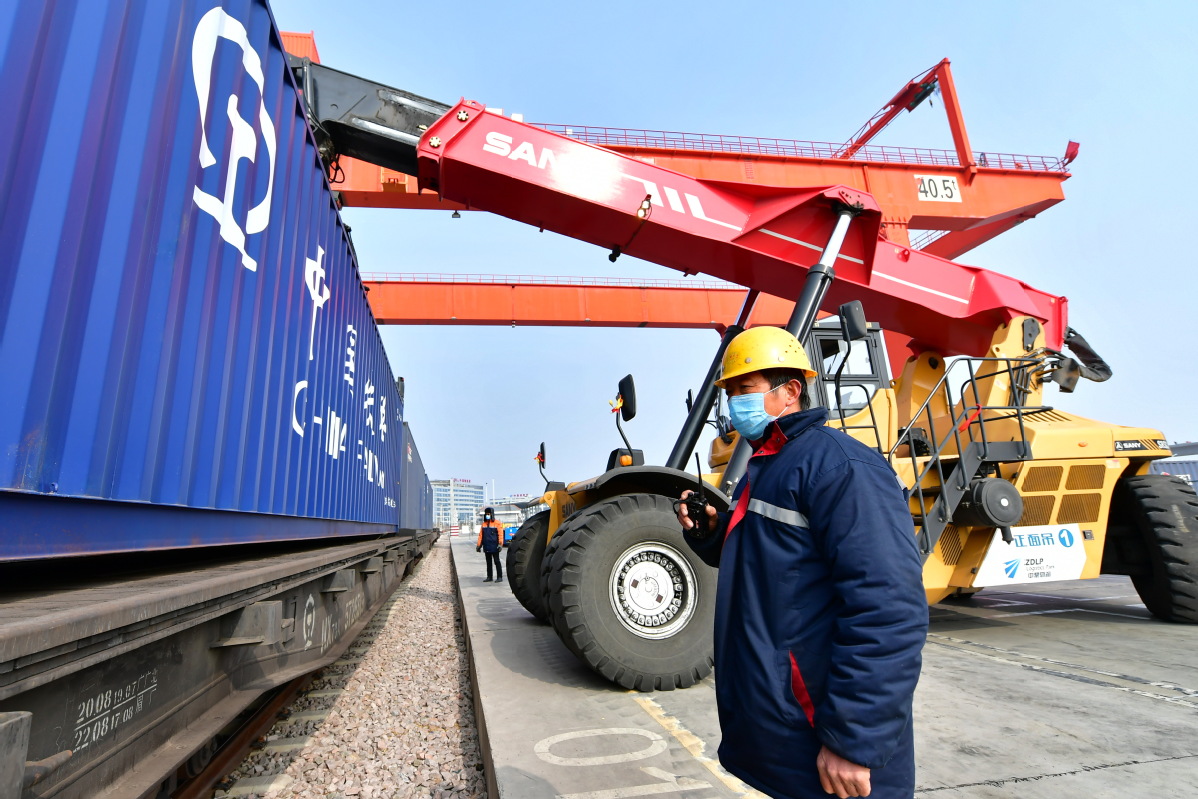China-CAREC cooperation to bear fruit on enhanced trade ties
By ZHENG YIRAN | China Daily | Updated: 2021-02-05 09:46

Appropriate niches, cooperation and dialogue between China and the other members of the Central Asian Regional Economic Cooperation Program should be enhanced to boost trade, experts said.
The CAREC Program, initiated by the Asian Development Bank in 1997 to encourage regional cooperation, covers Afghanistan, Azerbaijan, China, Georgia, Kazakhstan, Kyrgyz Republic, Mongolia, Pakistan, Tajikistan, Turkmenistan and Uzbekistan.
Hans Holzhacker, chief economist of the CAREC Institute, said that a key issue for the academic body is to promote trade and find appropriate niches and cooperation with China in order to increase exports to the world's second-largest economy.
"CAREC countries need to foster industries able to process the region's rich endowments with natural resources like metal ores, hydrocarbons, arable land and other areas. Apart from tourist destinations, CAREC countries have a lot to offer, from metals and rare earths to high-quality coking coal, fruits, grains, wines and apparel. The countries are also important for transiting products between China and Europe," Holzhacker said.
The CAREC Institute showed that amid challenges brought by the pandemic, Chinese imports from other CAREC countries fell 32 percent in May on a yearly basis. However, the downward trend eased to 5 percent year-on-year in June and 17 percent in July.
"We don't have data for the following months. However, judging from China's growth in the fourth quarter, the situation likely substantially improved beginning in July," he said.
Major Chinese imports from other CAREC members such as hydrocarbon fuels, grains and cotton still fell sharply in the second quarter, but imports of base metals, gold and foodstuffs increased substantially, according to the CAREC Institute.
Chinese exports to other CAREC countries also improved since July. According to the institute, in May, China's export volume decreased 36 percent on a yearly basis, but fell only 9 percent in June and rose 7 percent in July.
Second-quarter data showed that other major Chinese exports to the rest of CAREC members, such as solar cells, apparel and footwear, still declined compared to last year. However, there were strong increases in telecommunication devices such as phones and microprocessors as well as medical devices.
"This shows once again that the most important task for CAREC countries is to find the right niches for their products so that they will be more resilient even in times of crisis," Holzhacker said.
"China is deficient in ores and energy resources. Its commodities related to energy mainly rely on purchases from overseas, especially from other CAREC countries. Meanwhile, the countries have low productivity and their technology updates are slow. What they need are a variety of large-scale industrial and agricultural operating machines and various chemical products," said Tai-Leung Chong, associate professor from the Chinese University of Hong Kong, during an interview with Zijing.org.
"China and the other CAREC countries are urged to complement each other's advantages, use new technology to produce high-end commodities to raise trade volume, jointly promote the rationalization and standardization of the trading system and constantly boost communication and exchanges between the two parties," he said.
To enhance communication and exchanges, Holzhacker called for more dialogue between the Chinese government and governments of other CAREC members. Companies of both sides also have to be involved in the dialogue.
"China is designing on its 14th Five-Year Plan (2021-25). CAREC countries have their industrial policy plans, digitization plans, infrastructure plans and so on. There should be some coordination and exchange of views. Governments should not hesitate to also ask opinions from companies and business associations of other countries about their plans."
Specifically, he noted that there are smart diversification policies. CAREC countries adopted various plans for industrial policy, agricultural development, energy, tourism and other sectors.
"Success in shifting away from the over-concentration of hydrocarbon exports is most urgent as efforts for a global green transition might reduce demand for largely unprocessed hydrocarbons from CAREC in the long run. Downstream niches in this area should be found," Holzhacker said.
























